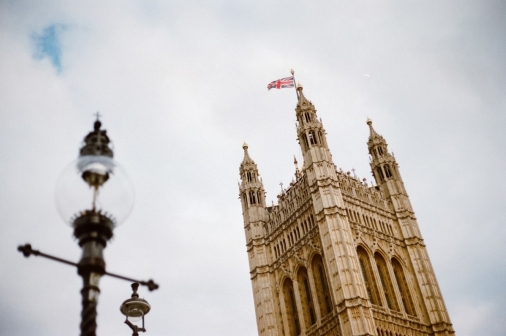
Church leaders are calling for prayer and "compassionate action" as the issue of legalising assisted suicide returns to Parliament.
Lord Falconer's Assisted Dying for Terminally Ill Adults Bill will soon have its second reading in the House of Lords, and backbench Labour MP Jake Richards has won a ballot to bring forward a Private Member's Bill aimed at legalising the practice.
Bishop John Sherrington, the Catholic Church's Lead Bishop for Life Issues, said that the Catholic Church "has always been opposed to assisted suicide in every circumstance". He called for proper care and support for terminally ill people at the end of their lives.
"The legalisation of assisted suicide undermines the sanctity and dignity of human life," he said.
"There is also now ample evidence across the world that the legalisation of assisted suicide puts the most vulnerable members of society at risk," he said.
"The Catholic Church accompanies those suffering and nearing the end of their lives with hope and affection, but also reminds them that their life is precious until the very last breath.
"This is the work that hospices and other healthcare institutions and hundreds of thousands of individual carers undertake every day, helping the terminally ill and dying to leave this world whilst preserving their dignity. They truly provide assistance to those who are dying."
Bishop Sherrington urged people to be informed about the issue and pray that politicians would have "wisdom and compassion".
"In preparation for these challenging debates, let us offer our prayers for those facing the end of their lives, that they may receive the care and support they need to live their final days with respect for their dignity," he added.
CEO of Christian advocacy group CARE, Ross Hendry, called assisted suicide "medically dangerous and unethical".
"The moral framework that underpins our approach to healthcare in the UK is based on the Christian belief that human beings, made in God's image, are endowed with inherent dignity, and worthy of strong protection. And that a person's value is not diminished by an illness or any other factor," he said.
"Involving doctors in the suicides of some people sends a regressive message that some lives are not worth living. The dangers of endorsing this idea are clear and were underlined in past parliamentary debates."
Recent polling by research group Living and Dying Well has found that fewer than half of 18 to 24 year olds in the UK support legalising assisted suicide, while more than half of UK adults fear it would lead to the normalisation of suicide. Nearly half of the over 2,000 people surveyed expressed concerns that some patients would feel pressure to end their lives.
Mr Hendry continued, "Instead of legalising assisted suicide, which undermines human dignity and puts vulnerable groups at greater risk of abuse and harm, UK politicians should ensure that investment and infrastructure are in place to ensure high quality palliative care for all people.
"The UK has huge work to do in this area, given a chronic underfunding of this aspect of healthcare. We'd also emphasise the need to enhance suicide prevention, and work towards a society where all lives are considered precious."













